The Human Flies - [7]
I was certain that the young Swedish woman probably smiled more on a warm sunny day and that her gaze was steadier than it was now. I found it easy to accept that a murder in the same building would be very frightening indeed for a foreign female student.
Flat 2A had some rather cluttered bookshelves, crammed with Norwegian, Swedish and English books, but was otherwise the flat of a tidy young woman. And apart from some kitchen knives, there was no evidence of any weapons in her flat either. She was momentarily baffled when I asked her if she had seen anyone in a blue raincoat, but then replied that she had not seen anyone in such a garment in the building, not yesterday or before.
Sara Sundqvist said that she had only spoken to the now deceased Harald Olesen briefly on a couple of occasions. He seemed to be a very friendly, if quiet and correct old gentleman. She had made efforts to be on first-name terms with the caretaker’s wife and the other people in the building, and had nothing negative to say about any of them. However, she could not claim to know any of them very well. ‘The Lunds, of course, only have eyes for each other and their little boy, and the others are all men who are a good deal older than me.’
There was nothing dramatic about Flat 2A and its tenant, and both struck me as being trustworthy. It was with some hesitation that I refrained from striking Sara Sundqvist from the list of suspects.
IV
According to the red heart-shaped nameplate, Kristian and Karen Lund lived in Flat 2B. With their thirteen-month-old son peacefully asleep in his cot, they came across as the epitome of a young, happy couple. And though they smiled every time they looked at each other or their son, the sombreness soon returned when they met my eye. Kristian Lund was a blond, stocky man of around five foot eleven who no doubt was normally relaxed and charming. However, he was now visibly shaken by the situation. He repeated several times that a murder in the building was of particular concern to someone with a wife and child, and that he was not at all sure whether he dared to leave them alone while he was at work until the murderer had been caught.
Neither Mr nor Mrs Lund could for a moment imagine that anyone in the building was behind the crime, so the murderer must somehow have managed to get in from outside. They only had good things to say about Harald Olesen. At times he might appear to be a bit lonely – he was after all a pensioner living on his own – but he was still an elegant man of vigour. The Lunds had never seen any guns in the building, and certainly not in their flat. The key words ‘blue raincoat’ meant nothing to them.
Regarding her own background, Karen Lund could tell me that she was the daughter and only child of a factory owner from Bærum. She had met her husband on an ‘otherwise rather boring course at business school’ and had worked for a fashion retailer for a while before getting married. Kristian Lund came from a lower class and was the child of a secretary and single mother from Drammen. There was a rather emotional moment when he commented that ‘My father could be anyone and I no longer want to know who he is.’ His mother, whom he had much to thank for, had died of cancer the year before, only days before the birth of her first grandchild. Kristian Lund was a qualified manager. He smiled smugly for a moment when he told me that his marks from business school were ‘better than expected by anyone other than myself’. He had received several ‘very attractive’ job offers recently, but was happy in his current position as the manager of a sports shop. His wife added in support that her parents were delighted with both their son-in-law and their grandchild. On the whole, she seemed to be far calmer and less shaken than her husband.
Following my visit with the Lunds, one rather mysterious question remained unanswered, which was, when had Kristian Lund actually come home on the evening of the murder? His wife was in no doubt that he’d come home at nine o’clock precisely. He had come in the door just after the start of The Danny Kaye Show on television, which started at five to. Kristian Lund explained that he had had to stay behind on his own in the shop as there was bookkeeping to be done, and that he had left there at around a quarter to nine. This was in line with what the caretaker’s wife had noted, which was that Kristian Lund came home at nine o’clock. But this did not accord with another small and rather confusing detail, which was that Darrell Williams claimed to have seen Kristian Lund come into the building while he was chatting with Konrad Jensen a whole hour before.
Kristian Lund’s anxiety regarding the situation increased when I mentioned this. He repeated several times that he did not get home until nine o’clock. If the two neighbours said otherwise, they must either be wrong about when they came in themselves or have confused him with someone else. His wife immediately came to his aid. She added with great sincerity that she had the world’s most reliable and honest husband, and that he had phoned home several hours before that to say that he would not be back until around nine. I hastily played down my question and withdrew, tactfully, to mull it over.
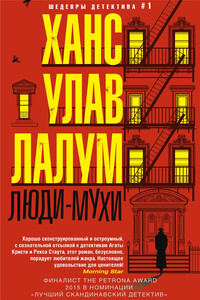
Убит бывший лидер норвежского Сопротивления и бывший член кабинета министров Харальд Олесен. Его тело обнаружено в запертой квартире, следов взлома нет, орудие убийства отсутствует. На звук выстрела к двери Олесена сбежались все соседи, но никого не увидели. Инспектор уголовного розыска Колбьёрн Кристиансен считает, что убийство, скорее всего, совершил кто-то из них. Более того, он полагает, что их показания лживы.
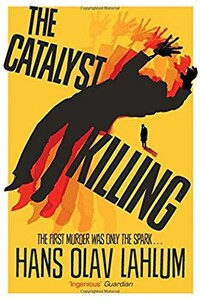
The third mystery in the hugely compelling, bestselling international crime series from Norway's answer to Agatha Christie, Hans Olav Lahlum, The Catalyst Killing will have you guessing to the final clue. The first murder was only the spark… 1970: Inspector Kolbjorn Kristiansen, known as K2, witnesses a young woman desperately trying to board a train only to have the doors close before her face. The next time he sees her, she is dead… As K2 investigates, with the help of his precocious young assistant Patricia, he discovers that the story behind Marie Morgenstierne's murder really began two years ago, when a group of politically active young people set out on a walking tour in the mountains.
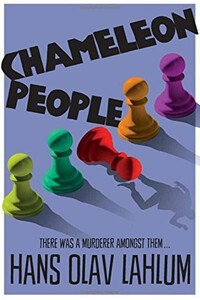
From the international bestselling author, Hans Olav Lahlum, comes Chameleon People, the fourth murder mystery in the K2 and Patricia series.1972. On a cold March morning the weekend peace is broken when a frantic young cyclist rings on Inspector Kolbjorn 'K2' Kristiansen's doorbell, desperate to speak to the detective.Compelled to help, K2 lets the boy inside, only to discover that he is being pursued by K2's colleagues in the Oslo police. A bloody knife is quickly found in the young man's pocket: a knife that matches the stab wounds of a politician murdered just a few streets away.The evidence seems clear-cut, and the arrest couldn't be easier.
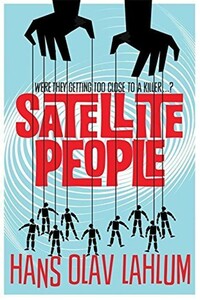
A gripping, evocative, and ingenious mystery which pays homage to Agatha Christie, Satellite People is the second Norwegian mystery in Hans Olav Lahlum's series. Oslo, 1969: When a wealthy man collapses and dies during a dinner party, Norwegian Police Inspector Kolbjorn Kristiansen, known as K2, is left shaken. For the victim, Magdalon Schelderup, a multimillionaire businessman and former resistance fighter, had contacted him only the day before, fearing for his life. It soon becomes clear that every one of Schelderup's 10 dinner guests is a suspect in the case.
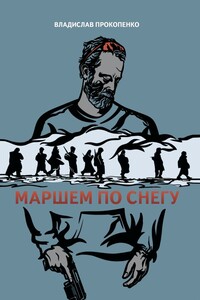
Политическая ситуация на Корейском полуострове близка к коллапсу. В высших эшелонах власти в Южной Корее, Японии и США плетется заговор… Бывших разведчиков не бывает — несмотря на миролюбивый характер поездки в Пхеньян, Артем Королев, в прошлом полковник Генштаба, а ныне тренер детской спортивной команды, попадает в самый эпицентр конфликта. Оказывается, что для него в этой игре поставлены на карту не только офицерская честь и судьба Родины, но и весь смысл его жизни.
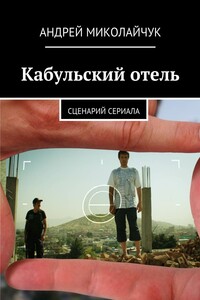
Когда на Youtube появилось прощальное видео Алексея, в котором он объясняется в любви к своей жене на фоне атаки талибов на британскую миссию в Афганистане, никто даже не подозревал о том, что это обыкновенный фотограф, который в попытке не потерять работу принял предложение сделать репортаж о старателях, добывающих изумруд.

Предновогодние деньки для многих — любимое время в году. Улицы и дома сверкают яркими огнями, все торопятся выбрать оригинальные подарки, а в воздухе витает настроение праздника! Признанные мастера криминального жанра Анна и Сергей Литвиновы тоже приготовили для читателей презент — сборник новогодних остросюжетных рассказов. Напряженные интриги и захватывающие дух повороты сюжета никого не оставят равнодушным, ведь под Новый год может случиться невероятное!
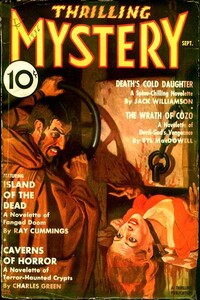
Герой этого рассказа возвращается в дом своего детства и находит своих братьев и сестру одичавшими и полубезумными. Почему они стали такими? Кто в этом виновен?

«Елена Мазина уже стояла в дверях, когда мужчина, ставший её очередным любовником, лениво, словно нехотя, спросил: – Мне тебе позвонить? – Нет, лучше я сама дам знать, если захочу тебя вновь увидеть…».

В книге рассказывается история главного героя, который сталкивается с различными проблемами и препятствиями на протяжении всего своего путешествия. По пути он встречает множество второстепенных персонажей, которые играют важные роли в истории. Благодаря опыту главного героя книга исследует такие темы, как любовь, потеря, надежда и стойкость. По мере того, как главный герой преодолевает свои трудности, он усваивает ценные уроки жизни и растет как личность.